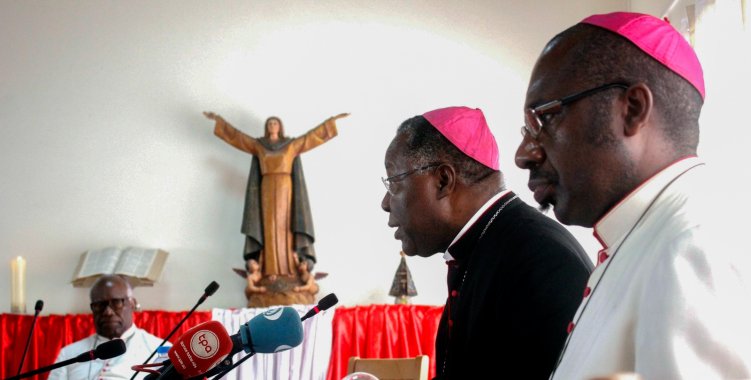According to the bishops of the Episcopal Conference of Angola and São Tomé (CEAST), in their Pastoral Note on the Social Situation of Angola, presented this Thursday, in Luanda, the current crisis increases the despair of families, urging them to don't lose hope.
The document, presented at the end of the CEAST Permanent Council meeting, which took place on Wednesday and Thursday in the capital, the prelates recall that November 11th is approaching, the date on which 48 years of the country's independence will be celebrated.
“Those who suffered the brutality of the colonial system firsthand saw on that day (November 11, 1975) the rebirth of their hopes with the possibility of achieving self-determination and the consequent creation of a new State capable of giving the best to its children. ”, they recall.
The bishops consider that the starting point, of an independent Angola, “was confusing”, as, they note, what was expected as a celebration of peace, fraternity and reconciliation, among all Angolans, “gave way to civil war with all the barbarity that followed.”
“Namely hunger, poverty, population displacement, insecurity, unproductivity, begging, the disruption of the social fabric, the loss of moral and ethical values and many other evils”, they highlight.
In this pastoral note, the Catholic prelates also highlight the achievement of peace “so desired by all Angolans” in 2002, after the civil war, which “gave a golden opportunity to rebuild the country, but, unfortunately, corruption drained the country.”
“Unfortunately, if in 1975 the civil war obscured our starting point, from 2002 onwards it was gangrenous corruption that drained the country and its resources, offering them freely for the development of other economies", they declare.
For the bishops, despite the financial crisis of 2008 and the crisis in oil-producing countries of 2014, the country appears not to have "learned the necessary lessons" to improve "the way of governing to achieve lasting well-being for all ”.
“Cyclical economic crises, the depreciation of the currency, the loss of purchasing power and the consequent difficult access to basic goods seem to be part of the daily lives of Angolans with no end in sight”, they lament.
According to CEAST, faced with this crisis, the “greatest temptation is that of despair, resignation and giving up”, but argues that, despite this, Angolans should not “lose hope”.
“Hope encourages an attitude of blessed subversion that does not resign itself in the face of adversity, hope always looks beyond, where this personal and collective fulfillment is possible, hope imprints a greatness of soul, an open spirit”, they also point out.
The meeting approved the agenda for the first plenary assembly of CEAST bishops in 2024, scheduled for February in the province of Malanje.







